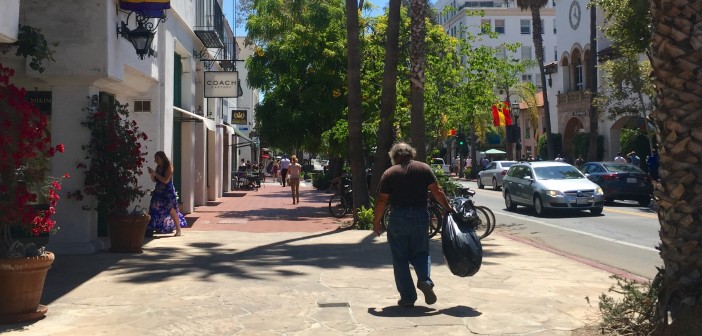What the Homeless Taught Me in an Hour
If you live in Santa Barbara, you’ve surely noticed the homeless “problem”. You also know that finding an available place to live is extremely difficult, and the cost of rent is exorbitant.
For those lucky enough to visit Santa Barbara, or the even luckier individuals who can comfortably call it home, Santa Barbara is the paradise they’ve come to love. If you take a quick walk around State Street, bustling with tourists, shoppers, and people lunching on the numerous restaurant patios, it’s obvious that the city takes great pains to make it seem this charming.
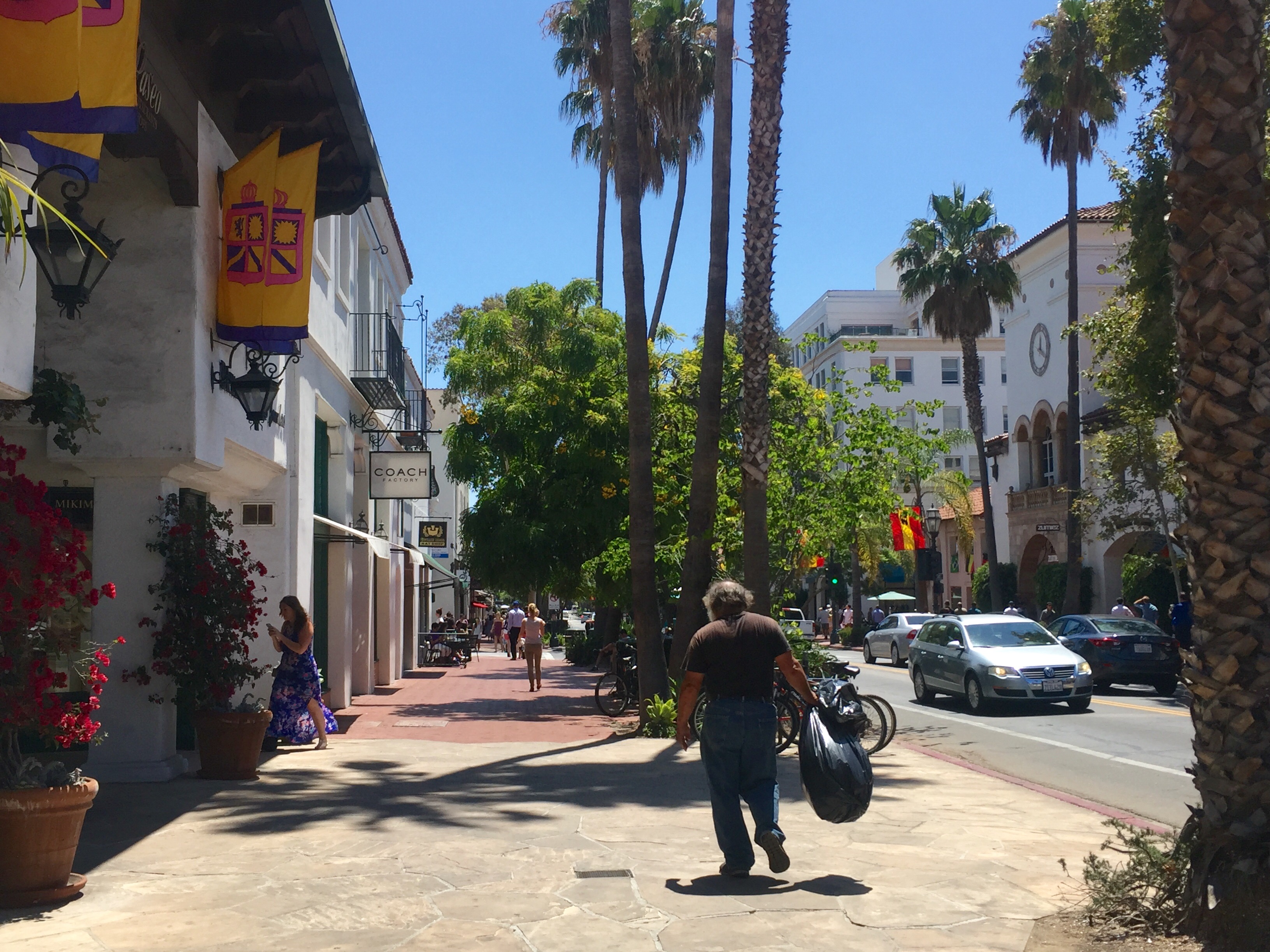
The most recent survey accounted for 1,455 homeless individuals in Santa Barbara County. Over a third are chronically homeless, having spent 5.5 years on average on the streets.
By the time noon rolls around, the homeless that I’ve passed on what feels like every square block have all but disappeared from plain sight. State Street is instead filled with busy people living their busy lives.
Every morning on my way to class I see a different side of Santa Barbara, one filled with homeless people. Sometimes I talk to them and sometimes I notice myself looking away and tensing up, particularly if they are in a group. By the time noon rolls around, the homeless that I’ve passed on what feels like every square block have all but disappeared from plain sight. State Street is instead filled with busy people living their busy lives. On most days, I’m one of them. I’m enjoying the sunshine, laughing with my friends, or rushing to work and school; only looking up from my iPhone long enough to sip from my French Press latte.
As a society, we tend to look away from the homeless. We don’t even want to acknowledge their presence, as if in doing so we are acknowledging the very problem itself, and our own feelings of helplessness.
Today, however, was different. At a time when I’d normally be sitting in class, I was talking to Wendell, a forty-something man I had just given a bottle of water. It was a hot day, Wendell was resting in a shady area on State Street when my classmates and I met him. Wendell told me he was working. He worked 10-10, but it was a breeze compared to his life in New York which was, as he put it, “24/7, ya know what I’m saying?” Wendell also happened to be homeless.
I never would have gotten to know Wendell if it weren’t for the hour I spent handing out sack lunches to homeless individuals through my Community Psychology class. As a society, we tend to look away from the homeless. We don’t even want to acknowledge their presence, as if in doing so we are acknowledging the very problem itself, and our own feelings of helplessness.
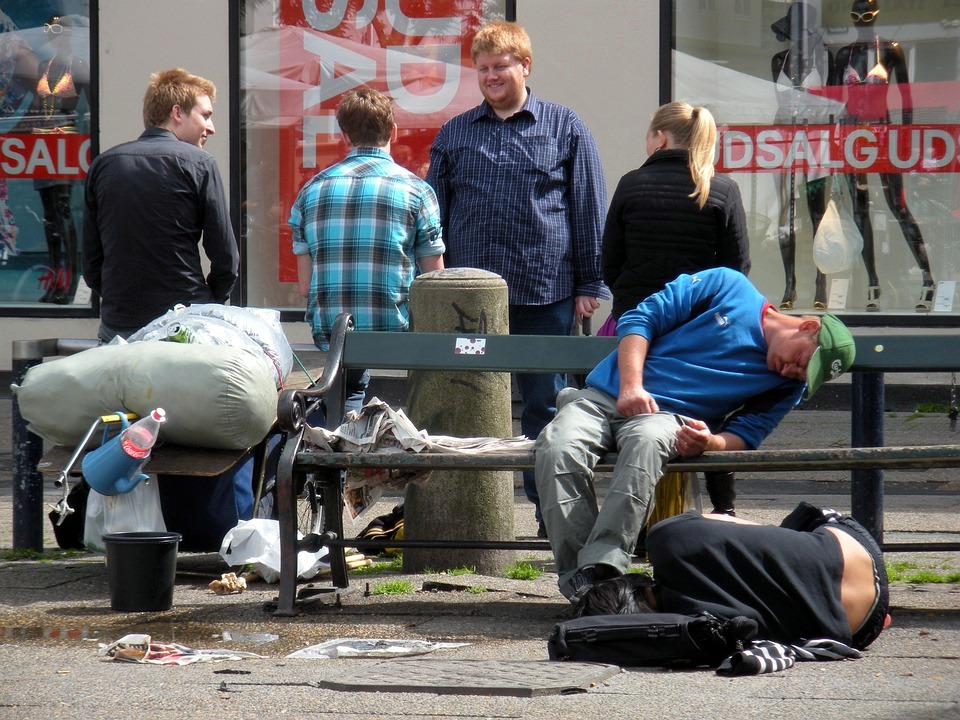
57% of Santa Barbara’s homeless reported experiencing some type of trauma or physical violence. 73% were incarcerated at one point.
Wendell wanted to get to know us. He wanted to know our names, what school we went to, and what we were studying. He was particularly concerned that Antioch actually had alumni, that it was a real University, because, “sometimes things have a sign outside, and you think they’re legit, but you go in and it turns out to be a McDonalds, ya know what I’m saying?” We weren’t really sure what he was saying, but we did enjoy his company. When we left Wendell, he told us that he hoped to see us around. The feeling was definitely mutual.
We started to find the humanity in the exchange: the importance that a simple smile and introduction held. We were no longer just trying to give a meal to someone, we were trying to connect with the person we were passing on the street.
The first man we met was sitting outside of Starbucks, a sight I have become accustomed to. When four twenty-something girls approached him, he seemed a little suspicious, almost alarmed. Once we started talking to him and offered him a meal, he stuttered, “Wow, thank you. That’s really something, girls.” Not used to being the type of person who is considered intimidating, it really hit hard just how used to being invisible he had become.
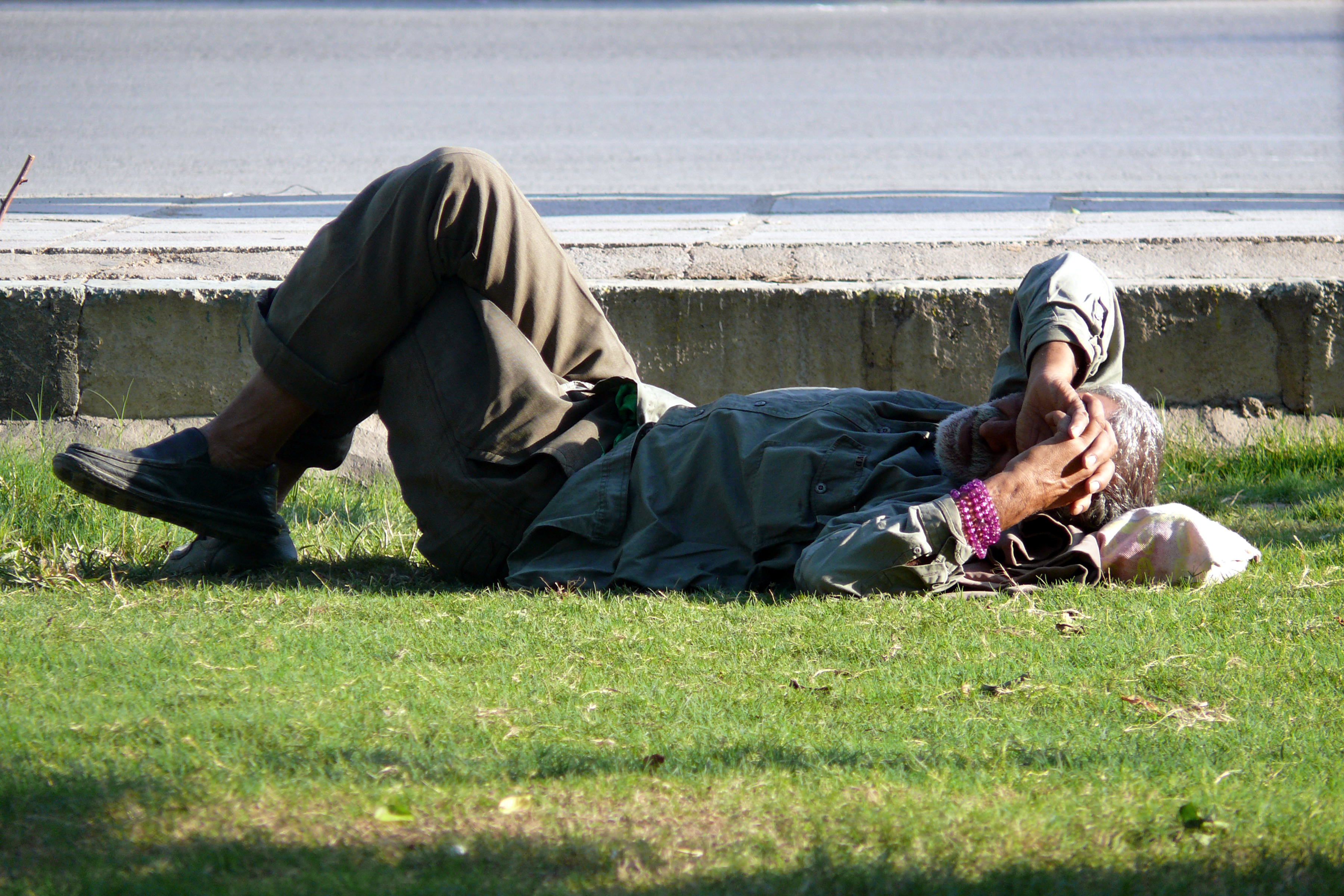
15% of Santa Barbara’s homeless are Veterans. 66.4% reported a mental health diagnosis, while 51.8% are suffering from PTSD.
The hesitancy, even fear, of approaching people while trying to respectfully offer a meal, seemed to fall away as the hour continued. We started to find the humanity in the exchange: the importance that a simple smile and introduction held. We were no longer just trying to give a meal to someone, we were trying to connect with the person we were passing on the street. Although many of the people we met appreciated the food, it was the human interaction they seemed to want.
What struck me the most was the true gratitude these individuals had for a meal that took maybe five minutes to put together. When we came across a man and a woman sitting on the steps, and asked if they were hungry, the man said “Well, yes, but are you sure you have enough to share?” The politeness and the concern for our well being, over his own, was overwhelming.
When we came across another man down the street, someone we’d seen wandering up and down State Street for awhile, we noticed that he had some chips and granola bars we had given out earlier. The fact that people who weren’t guaranteed a meal were giving away the one meal they knew they had, in order to help someone else, is not something I will forget.
I realized that the thing people are most grateful for is being treated like a human being and having human connection.
I often think about what I take for granted. Yet no matter how many realizations I seem to have about how lucky I am, it’s inconceivably easy to keep falling back into a trap of never being satisfied and fixating on the things I don’t have. In this hour, however, conversing with people who have almost nothing, who don’t even have the luxury of being acknowledged, I was shown the true meaning of gratitude.
They didn’t expect me to help them because I had more material wealth than they did. Instead, most of them were genuinely touched and appreciative of what I offered them, something I so often take for granted. They could have stopped there, and just enjoyed what they had been given, but they didn’t. They still wanted to make sure that others less fortunate than themselves were taken care of.
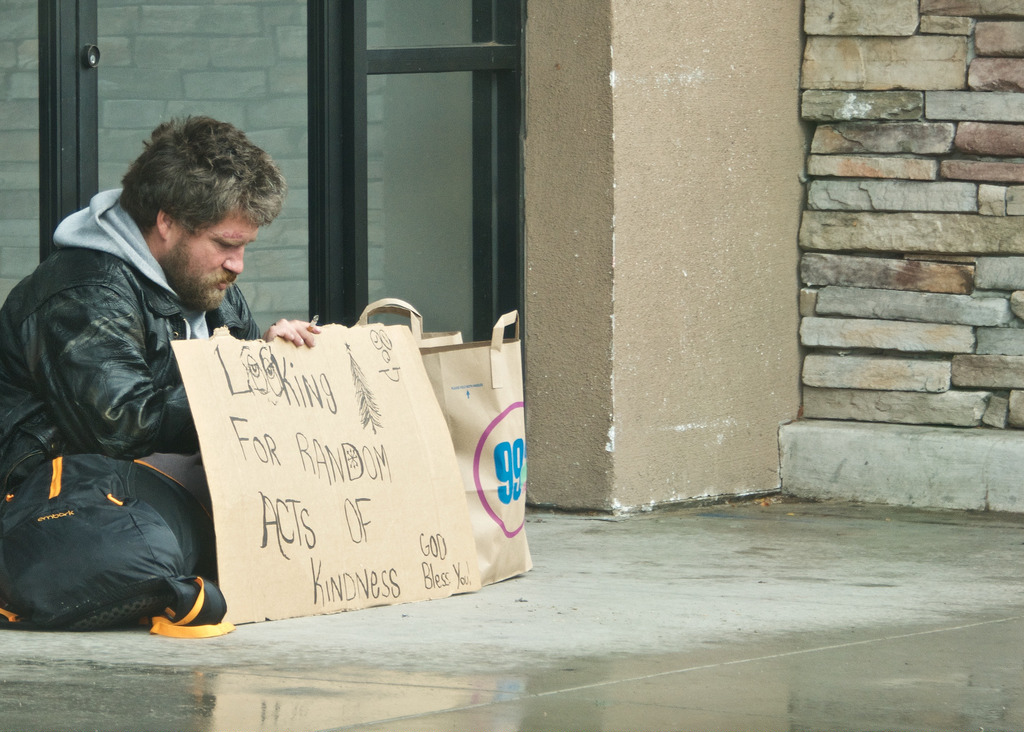
On my way home that day, I had one lunch left and a few granola bars. I saw a man in a wheelchair on the sidewalk, and another lying next to him napping in the shade. This man was grinning and waving at people passing by that wouldn’t even look in his direction. When I approached him he was truly ecstatic to just have someone to talk to, the meal be damned.
Somehow, as a society we have lost the ability to recognize ourselves in the people that our system has pushed into homelessness, and with it our ability to connect to them.
This hour has been replaying on my mind all week. Although these meals were cheap, easy, and something obviously needed, I’m still a broke and busy college student; keeping that up sounds overwhelming. Instead of feeling like I have nothing to give unless I have physical goods, however, I realized that the thing people are most grateful for is being treated like a human being and having human connection.
I know that ending homelessness is a much more complex issue than simply giving a meal or a smile. I know that ending homelessness is not something I could do on my own, and that can feel defeating to us all. Awareness of a problem is always the first step, and with that comes acknowledging the problem. If you begin to acknowledge the homeless, you will realize that they are human beings just like you and I. Somehow, as a society, we have lost the ability to recognize ourselves in the people that our system has pushed into homelessness, and with it our ability to connect to them. It seems our privilege has blinded us from recognizing what these individuals forced into homelessness have realized: we are nothing without each other.
If you want to get involved locally, you can contact, volunteer or donate to the following organizations:

